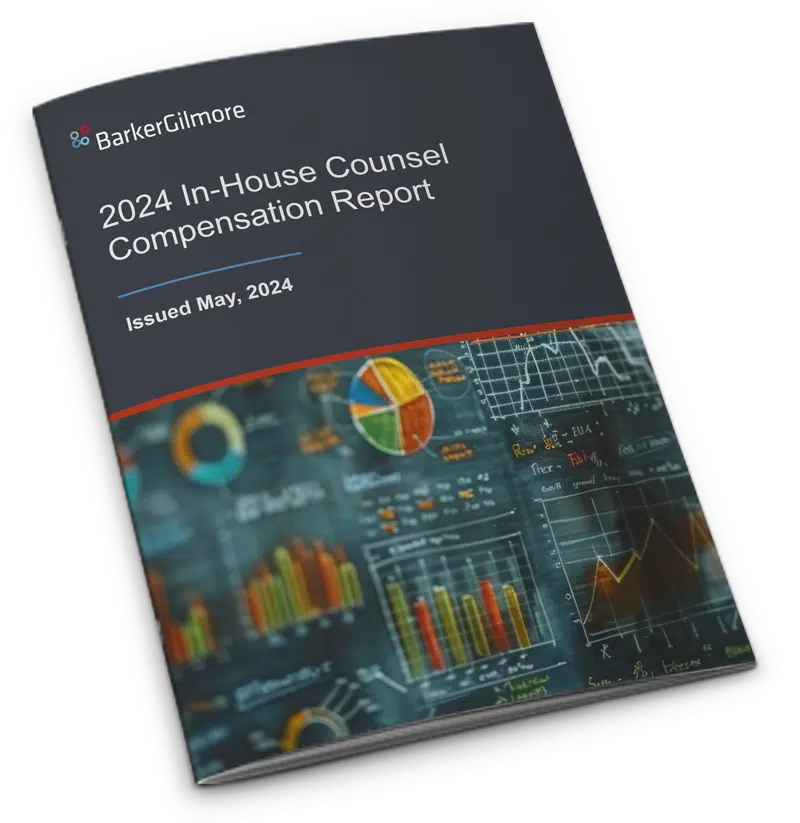A recent report by BarkerGilmore and Chief Executive Group found that CEOs are wanting more from their GCs. They want them to step up and add value at every possible turn. We spoke to A.B. Cruz III, Strategic Advisor and Coach with BarkerGilmore and former GC and Chief Legal Officer, about how acting GCs should respond to these findings and how they may be utilized to their advantage.
In an earlier article, A.B. commented on how sitting GCs can increase their value to the company and how they can be strategically involved in business decisions. Now, he provides invaluable insight into GC succession planning and the continued evolution of the GC’s role.
Our study found that 58% of public companies and 75% of private companies do not have a GC succession plan in place. Do you have any advice for companies when it comes to GC succession planning?
As important as succession planning is, most companies, regardless of size or sophistication, will admit – if they’re being honest – that, while they may have a succession plan, it’s not quite where it needs to be. Especially in today’s rapid-changing business world where there’s a great deal of upheaval and disruption in the marketplace, and a continuing high rate of employee/executive turnover, there is greater emphasis being placed (by boards and shareholders) on companies to develop robust succession plans to bring greater certainty and order when it comes to the transition of key roles within the company. The GC position is certainly one of those key executive roles. But succession planning is a very involved and time-consuming process that often gets “set aside” when things believed to be more important come up. So, corporate boards and company leaders really need to make succession planning a priority and can do so by, for example, making it an integral part of a company’s strategic plan, the employee performance review process, and the executive professional development program.
I don’t think the importance of having a viable succession plan can be emphasized enough, not only from a key role continuity need standpoint, but also from a professional development and advancement standpoint. Companies need to work constantly at retaining their best talent. If they are not investing in the development and advancement of their top-performers, or if these top-performers aren’t being given enough information or clarity and, as a result, can’t envision their own future within the company, they will “jump ship.” Good succession plans provide up-and-coming executives with a clearer picture of their potential future within the company, they spell out recommended professional development activities aimed at enhancing the executive’s career progression, and they also demonstrate the level of investment the company is making in support of the executive. So, there are many reasons why succession planning is critical to companies.
What do you believe the role of the GC will be 10 years from now? How do you anticipate it will continue to change?
Well, hopefully by then GCs will have responded positively to this “call to action,” and we’ll see both public and private company GCs alike having all succeeded in becoming valued and contributing members of their companies’ senior leadership teams. If this study were replicated in another five to ten years, I would hope it would show that GCs have indeed stepped up, mastered the application of the many skills expected of them, and demonstrated their worth and value as true strategic business partners. I believe GCs must and can meet this challenge. This should be an expectation up front when CEOs are hiring GCs, and GC candidates need to be prepared and engage accordingly.
Specifically, how will COVID-19 affect the role of the GC?
COVID-19 is playing out to be that quintessential black swan event that pretty much nobody saw coming. Its impact has been both deep and wide, and as I speak, it’s still having its way with our world. There are clear signs that, even if things return to the “old normal,” how we do things going forward, as individuals and collectively, will be different. For example, even those former work-from-home naysayers will now have to admit that they themselves have been productive while working at home, and that such things like team-building and instilling a sense of camaraderie can be still be achieved at some meaningful level when operating exclusively in the virtual realm. Indeed, COVID-19 has forced us to figure out how to engage and motivate a team, and have team members execute the mission, from the confines of their homes. These types of events cause people to change their perspective, and it forces them to be creative and innovative, sometimes out of pure desperation or absolute need. It’s much about finding ways to adapt and overcome adversity, surviving, and being resilient.
While I wouldn’t wish black swan events like COVID-19 on anyone, it really puts an emphasis on the need for companies to devise contingency plans aimed at helping their companies navigate worst-case-scenario events, like COVID-19. In my mind, GCs are well-positioned, given their training and unique roles and skills set, to help lead organizations’ contingency planning and crisis management efforts. Specifically, GCs can bring to bear their blend of skills, roles, and experiences, which include legal, regulatory, compliance, governance, ethics, risk management, crisis management, board/CEO/C-suite counselor, division leader, communicator, culture influencer, reputation protector, analytical abilities, judgment, and so on. Accordingly, GCs should see this as another opportunity to demonstrate their leadership skills and contribute meaningful value to the company.
Are there any areas of the business that GCs are not typically involved in where you believe their involvement would be beneficial? For instance, only 21% of public GCs and 8% of private company GCs surveyed indicated they were involved in cybersecurity.
There have been enough stories about cybersecurity attacks and hard lessons learned by companies to know that all employees need to be sufficiently knowledgeable about cybersecurity and know what they should do or should not do to ensure such attacks are thwarted. Likewise, and to an even greater extent, GCs need to be knowledgeable and involved in this area, especially when it comes to a company’s handling of a detected cyber breach. Indeed, while GCs (and really the entire senior leadership team) shouldn’t be expected to become cyber experts, they should at least be familiar with the types of cyber risks that pose a threat to their companies. So, spending time with your CISO/CTO/CSO teams and attending seminars on the topic would be well advised.
Companies that are at risk of cybersecurity attacks need to develop comprehensive cyber breach response and management plans, and GCs are well-suited, and should be involved in, the development of those plans, given their unique and typically wide-ranging roles, responsibilities, skills, and experiences, as was discussed previously. Once a plan is in place, the company needs to “practice the plan” regularly by conducting table-top exercises with all the various role players participating, which would include the GC and the company’s legal, compliance, and risk functions, which often report to the GC.
Another area in which I believe GCs can add great value is on the government relations front. Especially if one’s company is in a highly regulated industry, it is very important to maintain good relations with regulators and lawmakers, and, again, GCs typically possess the requisite skill sets to effectively represent and advocate for their companies.
Coaching and Advising from A.B. Cruz III
A visionary leader of the highest character who has developed and implemented many value- and brand-building initiatives, A.B. Cruz is a well-respected and credible thought leader. If you are looking for a strategic advisor like A.B., with decades of experience and invaluable insight to share, contact us today to discuss our coaching and advising services.
Connect with a legal recruiting advisor
* indicates required fields






